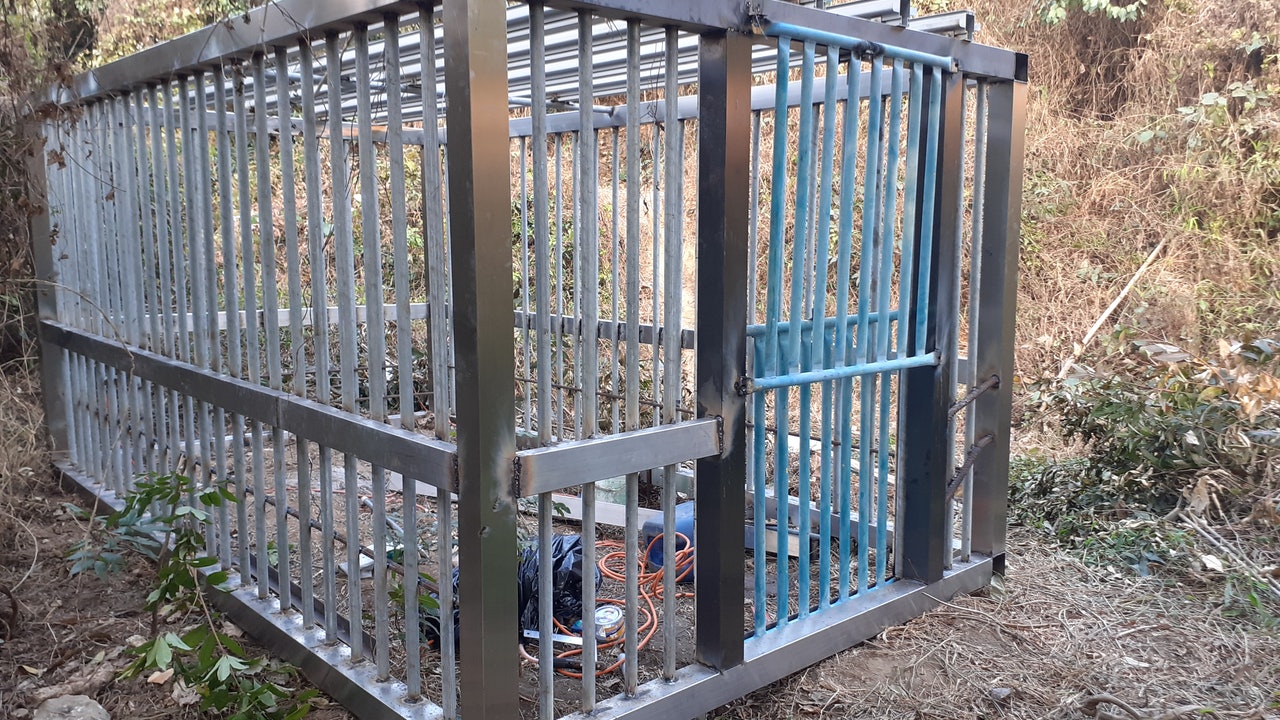Social News
Written by: Liang Huanmin
2021-06-16 18:33
Last update date: 2021-06-16 18:33
From time to time, members of the public will illegally set up traps and hunt wild animals in the countryside. Today, a member of the Legislative Council pointed out that there have been a number of incidents in which animals and citizens were injured by illegal traps in the suburbs. Whether it has anything to do with insufficient inspections by the department.
According to the AFCD, in the past three years, its staff have patrolled an average of more than 2,000 times. As of March this year, a total of nearly 700 animal traps have been seized and removed, but only one case of illegal use of animal traps has been successful. Prosecution was filed and the defendant was fined only 1,500 yuan in the case.
From time to time, people will find small trapping cages in the countryside.
(Screenshot of the Facebook video of the Hong Kong Wild Boar Follow Group)
According to data from the AFCD, from January 2018 to the first three months of this year, the number of patrols by the Department was 2,155, 2,228, 2,071, and 424 annually; the number of traps seized and removed was 236 each year. One, 177, 196 and 62, that is, 700 traps have been inspected in more than 3 years.
However, the authorities revealed that only one case of illegal use of animal traps was successfully prosecuted and the defendant was fined only $1,500.
In addition, 1 porcupine, 1 wild boar, 2 people and 3 animals have been injured so far.
According to the Department, the location where the animal traps are found is generally remote, and the person involved is usually not present. Therefore, it is difficult to gather sufficient evidence for prosecution.
In addition, since most of the relevant sites are located in the countryside and woodlands, there is no clear address and accurate coordinates, and it is difficult to accurately record the relevant geographic information in real time. Therefore, the AFCD does not keep a breakdown of the relevant sites.
The AFCD also pointed out that in addition to patrolling the suburbs, it will also conduct joint operations with the Police Department and the Association for the Protection of Animals to inspect some illegally installed black spots with traps, and will also distribute leaflets to nearby residents for publicity. Encourage them to provide clues and report if they find illegal hunting activities.
As the locations concerned are generally broad in scope, the AFCD will study how to use technology, including the application of surveillance cameras, to cooperate with appropriate measures to strengthen the work of supporting law enforcement.
Agriculture, Fisheries and Conservation Department wild boars and wild boars














/cloudfront-eu-central-1.images.arcpublishing.com/prisa/EXJQILQR5QI7OMVRTERD7AEZAU.jpg)